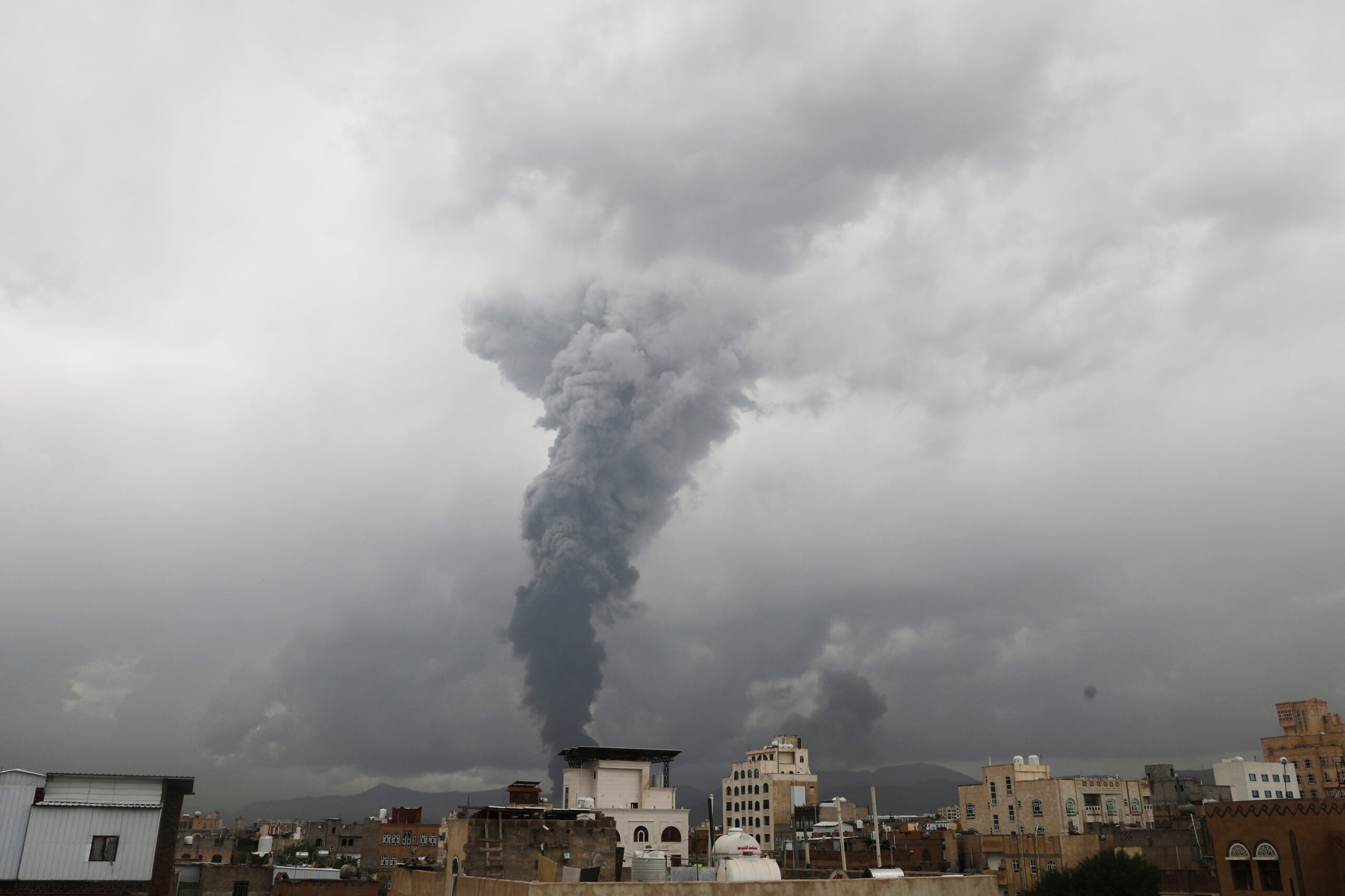CAIROJust days after the Houthi rebels launched a missile into Israel that its military characterized as the first cluster bomb the rebels had thrown at it since 2023, Israeli aircraft struck Yemen’s capital on Sunday.
The Houthis, who are supported by Iran, said that the strikes affected several locations in Sanaa. At least two individuals were killed and 35 others were injured, according to the Houthi-run health ministry.
Suggested Videos
An oil company was struck, according to the rebels’ Al-Masirah satellite station, and social media footage showed a flame bursting there.
Israel’s military claimed to have hit a military location that houses the presidential palace as well as the Asar and Hizaz power stations, describing them as important military facilities for supplying electricity.
Residents of Sanaa informed The Associated Press that they heard powerful explosions near the presidential palace and a shuttered military academy. They reported seeing smoke plumes close to Sabeen Square, one of the capital’s main gathering spots.
Hussein Mohamed, who lives near the presidential palace, said the explosion noises were very loud.
Ahmed al-Mekhlafy claimed to have felt the blows’ overwhelming intensity. He told the AP over the phone that the windows were broken and the house was rocked.
For more than 22 months, the Houthis have attacked ships in the Red Sea and fired missiles and drones at Israel, claiming their attacks are in support of the Palestinians during the conflict in Gaza.
The deputy head of the Houthi media office, Nasruddin Amer, asserted that the recent bombings would not stop the rebels from attacking Israel and promised to keep up the assaults.
He posted on social media, “God willing, our military operations supporting Gaza won’t stop unless the aggression is stopped and the siege is lifted.”
The Israeli strikes were Yemen’s first since Israel claimed to have targeted electricity facilities it suspected the rebels were using a week ago.
The most recent attacks, which targeted Ben Gurion, Israel’s main airport, come after the Houthis claimed to have launched a freshly outfitted missile toward the country on Friday. No injuries or damage were recorded. After multiple attempts at interception, Israel’s military claimed it broke apart in midair.
Speaking on condition of anonymity in accordance with military norms, an Israeli Air Force official described the rocket fired on Friday as a new threat. He claimed that it was a cluster munition, designed to explode into several bombs upon impact.
According to the official, the use of cluster bombs complicates Israeli interception and is an example of further equipment Iran has given the Houthis.
According to the official, Sunday’s strikes were carried out by more than ten Israeli fighter jets.
Over the last two years, houthi attacks have disrupted shipping in the Red Sea, which handles almost $1 trillion worth of commodities annually.
The Houthis used drones and missiles to target around 100 ships between November 2023 and December 2024. U.S. President Donald Trump launched a week-long bombardment campaign against the rebels after they halted their operations during a temporary ceasefire in Gaza.
Although the rebel group said the agreement did not involve stopping assaults on locations it believed were associated with Israel, the United States declared in May that it had reached an agreement with the Houthis to stop airstrikes in exchange for a cease to shipping attacks.
A rare daytime attack in May saw Israeli airstrikes target the Sanaa airport, destroying the terminal and leaving craters in the runway. According to airport officials, at least six passenger flights were struck, including three operated by Yemenia Airways.
___
Lidman reported from Jerusalem’s Metz and Tel Aviv, Israel. This article was written by Jon Gambrell of the Associated Press in Dubai, United Arab Emirates.








